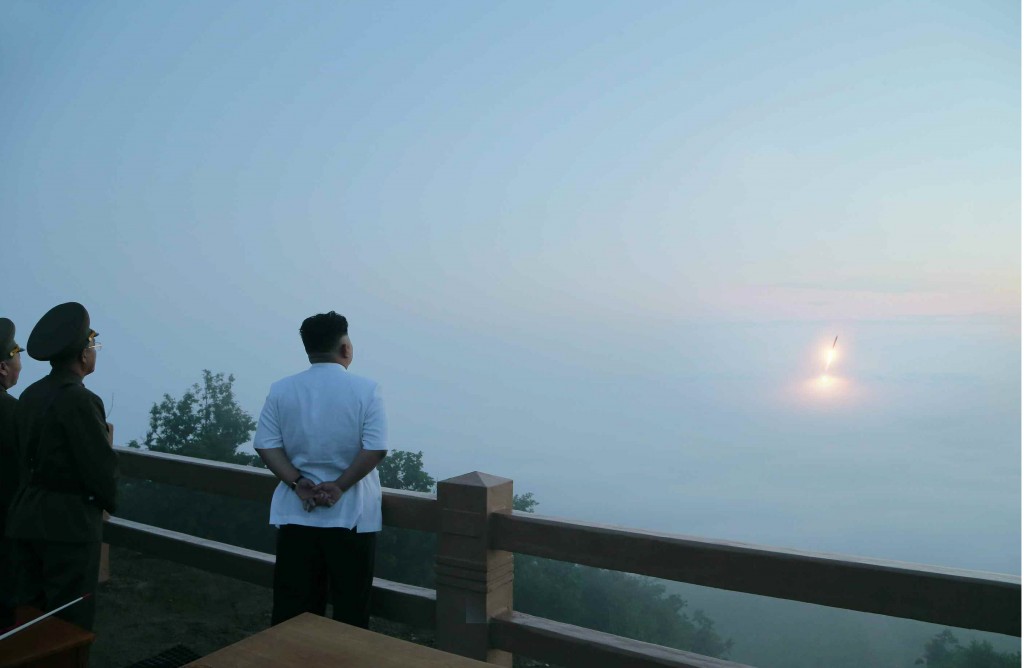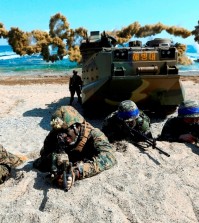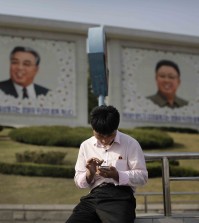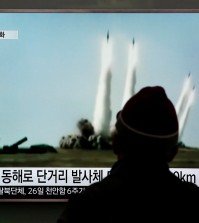- California Assembly OKs highest minimum wage in nation
- S. Korea unveils first graphic cigarette warnings
- US joins with South Korea, Japan in bid to deter North Korea
- LPGA golfer Chun In-gee finally back in action
- S. Korea won’t be top seed in final World Cup qualification round
- US men’s soccer misses 2nd straight Olympics
- US back on track in qualifying with 4-0 win over Guatemala
- High-intensity workout injuries spawn cottage industry
- CDC expands range of Zika mosquitoes into parts of Northeast
- Who knew? ‘The Walking Dead’ is helping families connect
North Korea threatens nuke war
By Kang Seung-woo
North Korea threatened Sunday that a nuclear war could erupt on the peninsula following the adoption of a resolution by the United Nations that could lead to its leader Kim Jong-un standing trial for human rights abuses, a typical tactic that experts say is aimed at deviating international attention away from other issues.
“Our army and people categorically deny and reject the resolution on human rights fabricated by the U.S and its allies by abusing the U.N.,” the state-controlled Korean Central News Agency said, quoting Defense Commission.
“The U.S. and its followers will be wholly accountable for the unimaginable and catastrophic consequences to be entailed by the frantic human rights racket,” it said.
“Does President Park think Cheong Wa Dae will be safe if guns roar aggressively and a nuclear war breaks out on the Korean Peninsula?” it said.
Last week, the Third Committee, which deals with human rights issues, passed a non-binding resolution calling on the U.N. Security Council (UNSC) to refer the issue to the International Criminal Court (ICC).
The resolution will be voted on during next month’s General Assembly before being passed to the 15-member UNSC.
On Saturday, Pyongyang protested against the resolution, bashing Washington and Seoul.
Rodong Sinmun said that the U.S. launched a human rights campaign in a bid to invent a pretext for starting an invasion, while the Committee for the Peaceful Reunification of Korea, an organ devoted to dealing with the South, criticized Seoul for helping the U.S. pass the U.N. resolution, describing it a declaration of war.
“Although the resolution has been passed by the Third Committee, the North aggressively attempts to block or weaken the resolution at the next stage in advance because the resolution itself is seen as indignity and pressure toward the North Korean regime,” said Chang Yong-seok, a senior researcher at the Institute for Peace and Unification Studies at Seoul National University.
“The vote on the resolution can also be likened to North Korean elite’s loyalty to its leader Kim Jong-un, so the country is increasing its fiery words,” Chang said.
He added that the rhetoric is urging the South not to join international cooperation, pressing the North on the issue of human rights, as well
An Chan-il, the head of the World Institute for North Korea Studies, said, “While undercutting the resolution, it means to send a message to the international community with chill in relations with the South and China.”
The ICC referral requires the consent of nine or more members at the UNSC including all five permanent members ― the U.S., France, the United Kingdom, Russia and China that can use their veto powers.
“The referral will not be likely because of China and Russia,” said An.
China is still the North’s last-remaining patron, and Russia and North Korea have recently shown signs of forming closer ties.
“After the North it could be China. As for Russia, it is intensifying confrontation with the U.S.,” said Chang.

















